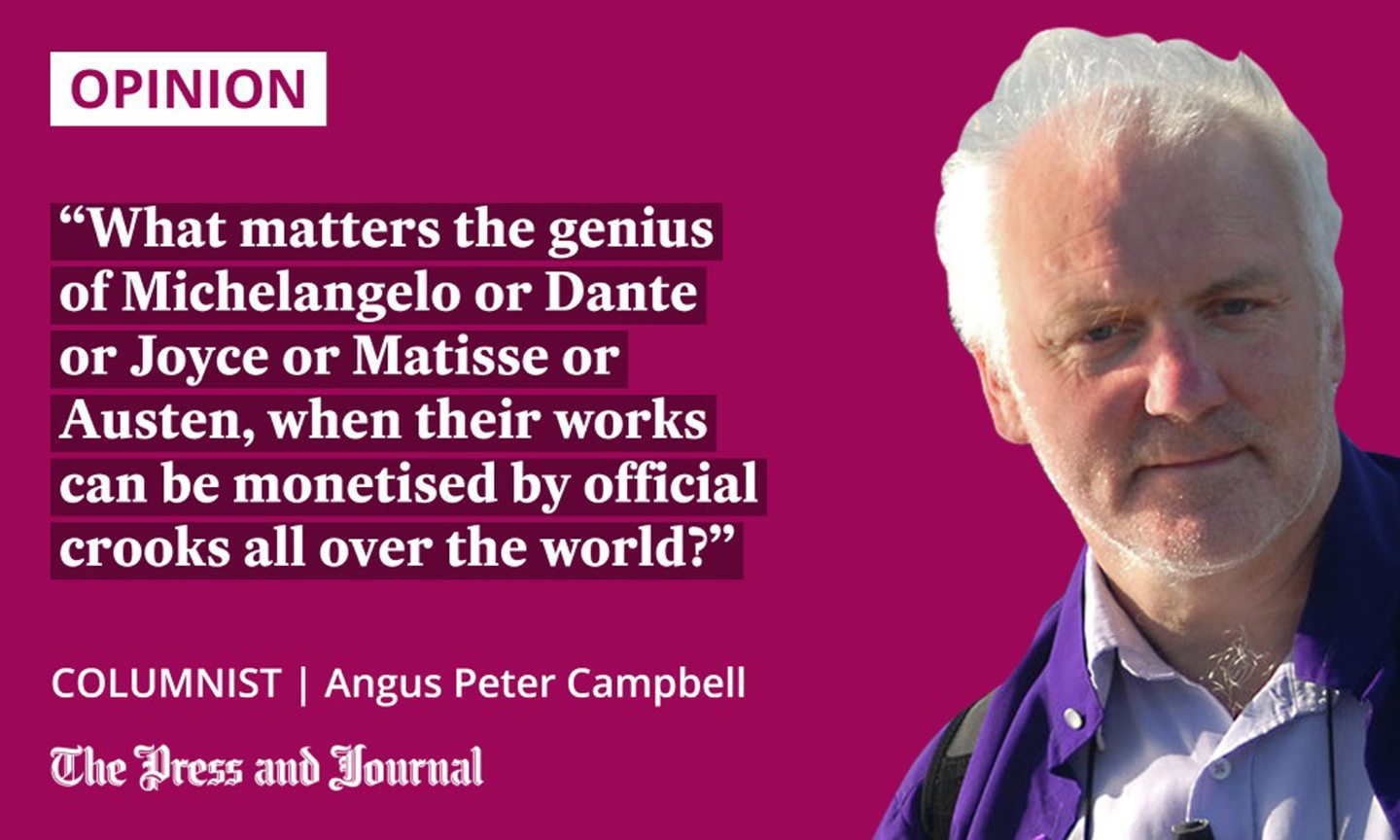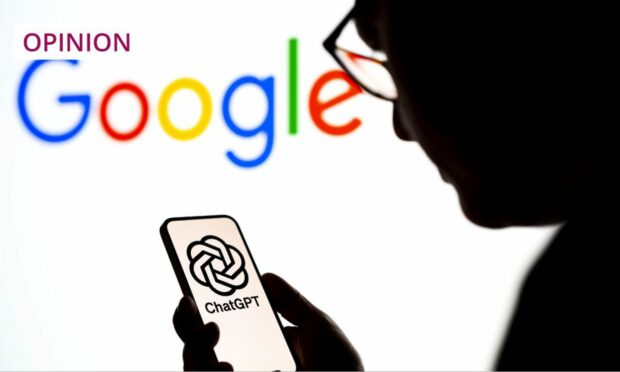I suppose Frankenstein (or was it Doctor Who?) led us all astray: into believing that when robots took over the world they would clunk around bumping into things, or come shuffling down Wentworth Street in Portree clanging: “Exterminate! Exterminate!”
That happens, right enough, but it’s only the guys in from Staffin for a wild weekend.
Truth is that the robots – or, more precisely, the machines – have already taken over. More precisely still, the Silicon Valley companies (Microsoft, Apple, Google, Meta, Amazon and so on), who are at the heart of information technology and leading us rapidly down into the ever-decreasing Dantean circles of AI, into AGI (Artificial General Intelligence). The deus ex machina of our day.
Most of us are unwitting, if not unwilling, and innocent victims of this whole process. Who asked our permission for Google to come along our street or glen with a camera stuck on top of a car to film where we live for transmission on the global web?
We now live in such a filmed world that we just accept it. Everywhere you go (even in church) you are being recorded. It’s a wholescale invasion of personal and social space. Personal manners swallowed by the machine.

Oh, I realise that there are “cookies” which we sign up to every time we research anything, though most of us, I’m sure, don’t take it seriously. We just find it an inconvenience on our way to that bit of information we want to find out at that moment. Maybe it’s not more information we need, but wisdom to use the knowledge we already have.
So, while we search for the latest data about the number of Gaelic speakers in the Western Isles, or check Shakespeare’s First Folio online, more data about our interests and choices and preferences are fed into the machine, whose algorithms then target us for more products.
It all seems fairly innocuous. If not inevitable. It’s the way of the world, ain’t it? And makes us here in Scotland as informed and smart and up-to-date as Silicon Valley itself, and who would begrudge that?
Except, it’s not that simple. I’m not sure that I want to be a data-bank citizen of Silicon Valley. Perhaps, after all, the freedom of the Kintail hills, with the views across to Skye, matter more than all the views on the web?
The individual’s copyright means nothing to the machine
What Google and Amazon and Meta and Microsoft and the rest of them are interested in is owning the world as a market. Not by clanking down Union Street in Aberdeen like Daleks, but by being invited into our living rooms and bedrooms (and hills) to take up residence. They come to you in sheep’s clothing, as Jesus put it, but, inwardly, they are ferocious wolves.
And, lest you think this is being overdramatic (or Biblical!), the reality is that by hoovering up the world’s data, these technological giants are literally stealing the creative work and knowledge of centuries for their own financial purposes. What matters the genius of Michelangelo or Dante or Joyce or Matisse or Austen, when their works can be monetised by official crooks all over the world?
And they’re not just stealing from the dead: we are now in a world where the individual’s copyright means nothing to the machine, so that anything you or I may create or produce is ready game for anyone. It’s become so prevalent – so “normalised” – that it’s more or less accepted.
But, maybe I was too hasty in dismissing Frankenstein and the Daleks. For industry insiders are now clearly warning us that AI’s superintelligence is hugely dangerous. We are on the verge, they say, of being mastered by the machines emerging out of the all-knowing beast that is ChatGPT.
Is it time to switch off?
So, what can be done? Certainly, our governments could and should establish clear legal lines as to what is permitted or not. But the problem, as Naomi Klein pointed out in her recent article on this issue in The Guardian, is that the world’s governments are already in the pockets of the big technological giants, who spend billions every year on lobbying them.
The good news is that Italy has just banned ChatGPT. Viva!
Not so much retreating back into the cave as advancing out into the open air
The individual alternative may be to have done with it all. To switch off the computer, put the mobiles and bank cards away, and have nothing to do with these seductive thieves. Grow our own food, shop locally, buy this paper from the local store, use cash, not a card, and so on and so forth. Not so much retreating back into the cave as advancing out into the open air.
Oh, and here’s the important thing: don’t blame the machines. Instead, let’s focus on the humans who, in the name of power and profit, have created them in their own image.
Angus Peter Campbell is an award-winning writer and actor from Uist


Conversation